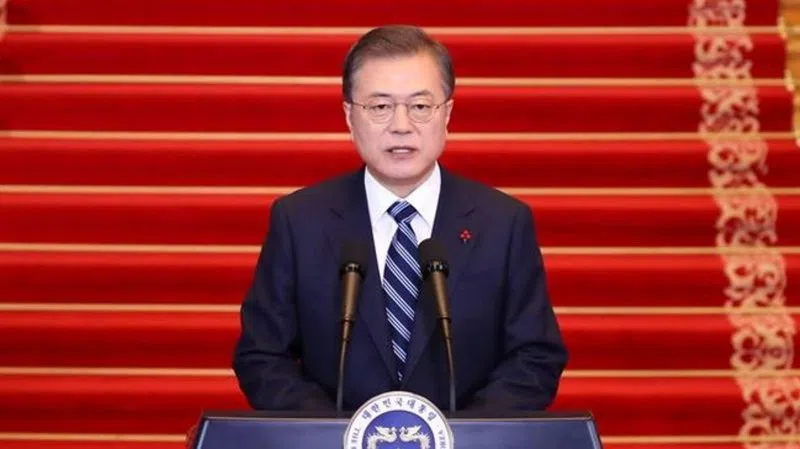
Moon renews invitation for Kim to visit South Korea
SEOUL, Korea, Republic Of — South Korean President Moon Jae-in on Tuesday said he hopes to see North Korean leader Kim Jong Un fulfil a promise to visit the South this year and called for the Koreas to end a prolonged freeze in bilateral relations.
In his New Year’s speech, Moon also reaffirmed his government’s commitment to resume inter-Korean economic activities that have been held back by U.S.-led sanctions imposed on the North over its nuclear weapons and missiles program. Any resumption would depend on progress in the larger nuclear negotiations between Washington and Pyongyang.
North Korea suspended virtually all co-operation with the South during a deadlock in those larger talks, while also pressuring Seoul to break away from Washington and restart the joint economic projects, which would breathe life into the North’s broken economy.
Moon called for the North to respond to Seoul’s efforts to resume bilateral dialogue, saying an improvement in inter-Korean relations would also help induce progress in the nuclear negotiations. He urged the North to refrain from military demonstrations and threats that would potentially hurt the momentum in nuclear negotiations with Washington.
